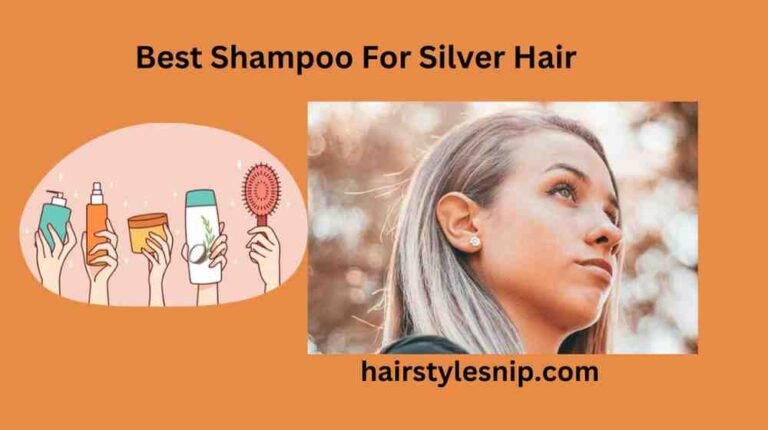Side Effects Of Coconut Oil On Hair
Coconut oil has become a popular natural element in many hair care products and habits. It is touted for its numerous benefits, such as boosting hair growth, reducing frizz, and improving overall hair health. However, while coconut oil can be beneficial for some people, it may also have some adverse side effects on hair. In this article, we’ll explore the potential drawbacks of using coconut oil on your hair.
Comedogenic Effect
One of the primary concerns with using coconut oil on the hair is its comedogenic nature. Comedogenic refers to the ability of a substance to clog pores. Coconut oil has a comedogenic rating of 4 out of 5, meaning it has a high likelihood of clogging pores and leading to the formation of blackheads and acne.
When applied to the scalp, coconut oil can clog the hair follicles, which can inhibit proper hair growth and lead to issues such as dandruff, itchiness, and even hair loss. This is particularly problematic for people with oily or acne-prone skin, as coconut oil can exacerbate these existing conditions.
Protein Overload
Coconut oil is rich in proteins, and while this can be beneficial for some hair types, it can also lead to a protein overload for others. Protein is essential for maintaining the strength and structure of hair, but too much protein can result in hair becoming brittle, dry, and more prone to breakage.
Individuals with fine, thin, or damaged hair may be particularly susceptible to protein overload from using coconut oil. This can lead to increased shedding, split ends, and a general worsening of hair health. If you notice your hair becoming more fragile or brittle after using coconut oil, it’s a sign that you may be experiencing a protein overload.
Allergic Reactions
Some people may be allergic or sensitive to the components found in coconut oil, which can cause adverse reactions when applied to the scalp or hair. Symptoms of an allergic reaction may include redness, itching, irritation, or even a burning sensation on the scalp.
People with nut allergies or sensitivities may be more prone to experiencing these types of reactions, as coconut oil is derived from the meat of the coconut, which is a type of tree nut. It’s important to do a patch test before applying coconut oil to your entire head of hair to ensure that you don’t have any adverse reactions.
Difficulty Washing Out
Coconut oil is a relatively thick and heavy oil, which can make it challenging to remove from the hair and scalp. If you use too much coconut oil or don’t properly rinse it out, it can leave your hair feeling greasy, heavy, and difficult to style.
This can be especially problematic for people with fine or thin hair, as the residual oil can weigh down the strands and make the hair appear limp and lifeless. Additionally, the buildup of coconut oil on the scalp can lead to a feeling of heaviness and discomfort.
Dryness and Brittleness
While coconut oil is often touted for its moisturizing properties, it can actually have the opposite effect for some individuals. Depending on your hair type and condition, coconut oil may actually contribute to dryness and brittleness.
This is particularly true for people with already dry or damaged hair, as the oil may not be able to penetrate the hair shaft effectively and may instead sit on the surface, leading to a heavy, greasy feeling. Additionally, the high protein content of coconut oil can further contribute to dryness and brittleness, especially if used in excess.
Increased Sebum Production
Coconut oil has a comedogenic nature, as mentioned earlier, which can lead to increased sebum production on the scalp. Sebum is the natural oil produced by the sebaceous glands, and an overproduction of it can result in a greasy, oily scalp and hair.
This can be problematic for individuals who already have naturally oily or greasy hair, as the addition of coconut oil may exacerbate the issue. The excess sebum can also contribute to the buildup of dirt, debris, and product residue on the scalp, which can lead to further issues such as dandruff or even hair loss.
Potential for Fungal Infections
Coconut oil is a natural antimicrobial agent, which can be beneficial in certain situations. However, this same property can also lead to potential issues when used on the scalp.
The antimicrobial properties of coconut oil can disrupt the delicate balance of the scalp’s microbiome, which includes the presence of beneficial fungi and bacteria. This disruption can create an environment that is more favorable for the growth of harmful fungi, such as those that cause scalp conditions like dandruff or seborrheic dermatitis.
In some cases, the use of coconut oil on the scalp may exacerbate or contribute to the development of these fungal infections, leading to increased itchiness, flakiness, and overall discomfort.
Difficulty Coloring or Chemically Treating Hair
The presence of coconut oil on the hair can also interfere with the effectiveness of certain hair treatments, such as coloring or chemical services.
Coconut oil can create a barrier on the hair, preventing the color or chemical agents from penetrating the hair shaft effectively. This can result in uneven, patchy, or unsatisfactory results when attempting to color or chemically treat the hair.
Additionally, the presence of coconut oil can make it more difficult to achieve the desired results, as the oil may interfere with the chemical reactions necessary for the hair treatment to work properly.
Potential for Increased Shedding
In some cases, the use of coconut oil on the hair and scalp can contribute to increased shedding or hair loss. This can be due to a variety of factors, such as the comedogenic nature of the oil, the protein overload, or the disruption of the scalp’s microbiome.
When the hair follicles become clogged or the scalp’s environment is disrupted, it can lead to a disruption in the hair growth cycle, resulting in increased shedding or hair loss. This can be particularly problematic for individuals who are already experiencing hair loss or thinning.
Alternatives to Coconut Oil for Hair Care
If you have experienced any of the side effects mentioned above or simply want to avoid the potential risks of using coconut oil on your hair, there are several alternative oils and ingredients you can consider:
1. Argan Oil: Argan oil is a lightweight, non-comedogenic oil that is often touted for its moisturizing and nourishing properties without the risk of clogging pores.
2. Jojoba Oil: Jojoba oil closely resembles the natural sebum produced by the scalp, making it a gentle and non-comedogenic option for hair and scalp care.
3. Olive Oil: Olive oil is a versatile and nourishing oil that can be beneficial for various hair types, from dry and damaged to oily and problematic.
4. Aloe Vera: Aloe vera is a natural, soothing ingredient that can help to hydrate the scalp and hair without the potential for clogging pores or causing other adverse effects.
5. Avocado Oil: Avocado oil is rich in fatty acids and vitamins that can help to strengthen and moisturize the hair without being too heavy or greasy.
When using any new hair care product or ingredient, it’s always a good idea to do a patch test first to ensure that you don’t have any adverse reactions. Additionally, be mindful of the amount you use and how your hair and scalp respond to it over time.
FAQ: Side Effects Of Coconut Oil On Hair
Q: Can coconut oil clog pores on the scalp?
A: Yes, the thick, heavy consistency of coconut oil can easily build up on the scalp and clog pores, leading to issues like dandruff and acne.
Q: Is coconut oil good for fine or thin hair?
A: No, coconut oil may not be the best option for people with fine or thin hair, as it can make the hair look and feel greasy and weighed down.
Q: Can you be allergic to coconut oil?
A: Yes, some people can have allergic reactions to coconut oil, including rashes, redness, and itching on the scalp and skin.
1. Can coconut oil cause hair loss?
Yes, coconut oil can potentially contribute to hair loss in some cases. The comedogenic nature of coconut oil can clog hair follicles, leading to disruptions in the hair growth cycle and increased shedding or thinning of the hair.
2. Is coconut oil good for all hair types?
No, coconut oil may not be suitable for all hair types. Individuals with fine, thin, or already dry and damaged hair may be more prone to experiencing negative side effects from using coconut oil, such as protein overload, dryness, and brittleness.
3. How do I know if coconut oil is causing issues for my hair?
If you notice your hair becoming more greasy, heavy, or prone to breakage after using coconut oil, it may be a sign that the oil does not agree with your hair type. Additionally, if you experience scalp irritation, itchiness, or increased dandruff, these could be indications that the coconut oil is clogging your pores or disrupting the scalp’s natural microbiome.
4. How can I prevent the side effects of coconut oil on my hair?
To prevent the potential side effects of coconut oil, you can try the following:
- Start with a small amount of coconut oil and gradually increase the usage if your hair responds well.
- Ensure you’re thoroughly rinsing out the coconut oil after use to prevent buildup.
- Opt for virgin or unrefined coconut oil, as it may be less comedogenic than refined varieties.
- Consider using coconut oil as a pre-shampoo treatment rather than leaving it on for an extended period.
- If you experience any adverse reactions, discontinue use and switch to a different oil or hair care product.
5. Are there any alternatives to coconut oil for hair care?
Yes, several alternative oils and ingredients can be used instead of coconut oil, such as argan oil, jojoba oil, olive oil, aloe vera, and avocado oil. These options may be less likely to cause the side effects associated with coconut oil, depending on your hair type and needs.
Conclusion
Coconut oil has gained widespread popularity in the hair care industry, but it’s essential to be aware of the potential side effects it may have on your hair and scalp. From clogged pores and protein overload to allergic reactions and difficulty washing out, coconut oil may not be the best choice for everyone.
If you’ve experienced any negative effects from using coconut oil on your hair, it’s recommended to explore alternative oils and ingredients that may be more suitable for your hair type and condition. By being mindful of your hair’s needs and experimenting with different options, you can find the best hair care routine that works for you without sacrificing the health and appearance of your locks.
Remember, everyone’s hair is unique, and what works for one person may not work for another. It’s essential to pay attention to how your hair and scalp respond to different products and ingredients and make adjustments accordingly. With the right approach, you can achieve the healthy, beautiful hair you desire without the risk of potential side effects.
Related post:
Do Pantene Shampoos Contain dmdm Hydantoin
How To Remove Hair Tinsel Beads At Home
Locking Gel For Dreads
Pros And Cons Of Hair Removal Spray



